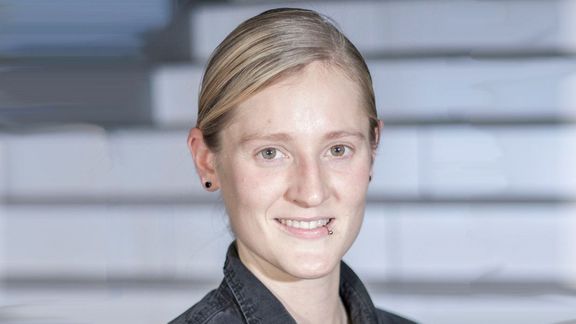A good family friend was a design engineer and gave her some insight into his work, and after an internship in production and quality assurance, her desire to study mechanical engineering was clear.
She enrolled at the dual university in Baden-Württemberg. This dual study programme offered her the opportunity to gain work experience during her Bachelor’s degree and secured her a job as a design engineer after graduation. “My constructive feedback on the course of studies additionally offered me the chance to improve the quality of the company’s internal training in terms of content and to contribute my experience from my own time as a student. I was able to supply my know-how in defining and organising training courses lasting more than 6 weeks and in my role as internal contact person for students. This then also made me realise that teaching didactics and passing on my own knowledge is close to my heart,” she recalls.
Her professional curiosity further motivated her to pursue a Master’s degree. It was clear from the start that she wanted to continue her education in a different area of mechanical engineering. Over the course of her research, she then came across the Master’s course in Mechanical Engineering and Lightweight Construction at Carinthia University of Applied Sciences. “Materials science appealed to me and, in particular, the specialisation in lightweight materials and lightweight design principles offered on this Master’s course,” reports Clarissa Becker. She was extremely surprised by the very international study climate at CUAS. In particular, the events organised by the International Office have fostered cross-study friendships and contributed to mutual cultural understanding. The highlights she remembers most are joint activities: a trip to the lake, excursions to the mountains for hiking or snowboarding in winter, and a short bike ride to Italy for pizza.
During her Bachelor’s studies, she was able to spend a semester abroad at California State University. This opened up a completely different learning culture for her. In the USA, one has to rely on financial resources or scholarships – people often start their careers with high student loan debts. This exchange with American students made her realise what a great privilege we have in Germany and Austria to receive state support to finance our studies, with no or relatively low tuition fees to pay.
When asked what she describes as challenging in retrospect, she answers, “It was difficult for me to find a good way to deal with my general perfectionism and idealism in my studies. However, after a few hurdles, where I received great support from Carinthia University of Applied Sciences, I was able to pursue my goal.”
In her Master’s thesis, she dealt with the topic of 3D printing of fibre-endless composites. Currently Clarissa Becker is employed as a research assistant at Carinthia University of Applied Sciences in a 3-year cooperation project with the Technical University in Compiègne (FR).
“After my Master’s thesis, I continued to look into 3D printing of continuous fibres and this technology fascinated me more and more. This eventually led to my interest in a PhD in the field of 3D printing of continuous fibre composites. I am very grateful for the opportunity to spend some time in France and to get to know university life there. This would not have been possible without the support from CUAS,” she asserts.

